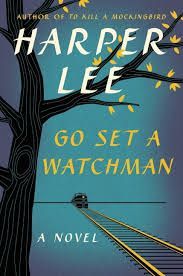
Go Set a Watchman A Novel
An historic literary event: the publication of a newly discovered novel, the earliest known work from Harper Lee, the beloved, bestselling author of the Pulitzer Prize-winning classic, To Kill a Mockingbird. Originally written in the mid-1950s, Go Set a Watchman was the novel Harper Lee first submitted to her publishers before To Kill a Mockingbird. Assumed to have been lost, the manuscript was discovered in late 2014. Go Set a Watchman features many of the characters from To Kill a Mockingbird some twenty years later. Returning home to Maycomb to visit her father, Jean Louise Finch—Scout—struggles with issues both personal and political, involving Atticus, society, and the small Alabama town that shaped her. Exploring how the characters from To Kill a Mockingbird are adjusting to the turbulent events transforming mid-1950s America, Go Set a Watchman casts a fascinating new light on Harper Lee’s enduring classic. Moving, funny and compelling, it stands as a magnificent novel in its own right.
Reviews
Jenny Engel@jennifer975
Brishti Basu@brish_ti
taryn@tarynbrickner
Melissa Palmer@melissapalmer404
Amy Place@amy_place
Charlsy Sekyere@charlsy_s
Luke Stamps@lukestamps
Jonathan Tysick@jtsick6
Colleen@mirificmoxie
Arjo Gupto@arjo
Ed Kay@edk
Toyah Blackburn@rockabillybibliophile
Mohammed Moussa@redpirate90
Ayden@pegasus
Latitude Tamarind@geographreads
paulina bug@paulinabug
Taylor Thompson@rokin14
Skye@skyeslibrary
Daniela Peña @dpenreads
Jill Niemeier @jillniemeier
Jenny@my_little_spark_of_madness
Skye@skyeslibrary
Sarah Ryan@sarahryan
Shameera Nair Lin@therealsnl